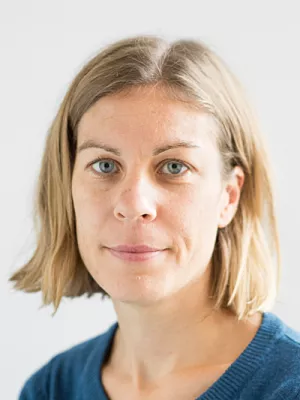
Helena Hanson
Universitetsadjunkt

Ticking the green box: Ethical consequences of planning urban ecosystem services in a ‘rational way’
Författare
Summary, in English
Climate change and an increasing urbanisation create pressure on cities in terms of extreme weather events, deteriorated public health and wellbeing and a loss of biodiversity. Strengthening the provision of urban green and blue space (UGS) and ecosystem services (ES) is one way to reduce vulnerability and improve living conditions, and ’greening’ is often highlighted as an important path to create more sustainable cities. Greening efforts have generated an increased
attention from both science and practice towards using tools and frameworks that can support decisions on where, what and how much UGS to preserve or create (ranging from simple Excel calculations, to infrastructures for big data collection) to safeguard the provision of urban ES. The aim of the study was to reflect on justice issues related to the use and reliance on different UGS/ES
planning tools in municipal planning processes. We used a mixed-method approach, including semi-structured interviews and stakeholder workshops with actors involved in UGS development, in Sweden; focusing on the city of Malmö and its neighbouring municipalities. We use the theoretical framework environmental justice and analyse distributive, recognition, and procedural
justice issues in relation to the use of UGS/ES planning tools. We highlight that some UGS/ES planning tools can help to overcome injustices, especially in relation to stakeholder engagement, but also that easily ‘tick-able’ tools, disregarding plurality in relation to nature and human needs, tend to be mainstreamed into urban green space governance, just because they are simple to work with. We argue that the current focus on tools and assessment frameworks enforce a ‘rational way’ of dealing with UGS; reducing the engagement in sincere deliberation needed for the development of a just, diverse (related to citizens’ needs) and sustainable UGS.
attention from both science and practice towards using tools and frameworks that can support decisions on where, what and how much UGS to preserve or create (ranging from simple Excel calculations, to infrastructures for big data collection) to safeguard the provision of urban ES. The aim of the study was to reflect on justice issues related to the use and reliance on different UGS/ES
planning tools in municipal planning processes. We used a mixed-method approach, including semi-structured interviews and stakeholder workshops with actors involved in UGS development, in Sweden; focusing on the city of Malmö and its neighbouring municipalities. We use the theoretical framework environmental justice and analyse distributive, recognition, and procedural
justice issues in relation to the use of UGS/ES planning tools. We highlight that some UGS/ES planning tools can help to overcome injustices, especially in relation to stakeholder engagement, but also that easily ‘tick-able’ tools, disregarding plurality in relation to nature and human needs, tend to be mainstreamed into urban green space governance, just because they are simple to work with. We argue that the current focus on tools and assessment frameworks enforce a ‘rational way’ of dealing with UGS; reducing the engagement in sincere deliberation needed for the development of a just, diverse (related to citizens’ needs) and sustainable UGS.
Avdelning/ar
- Centrum för miljö- och klimatvetenskap (CEC)
- BECC: Biodiversity and Ecosystem services in a Changing Climate
Publiceringsår
2021
Språk
Engelska
Dokumenttyp
Konferensbidrag: abstract
Ämne
- Environmental Sciences
- Social Sciences Interdisciplinary
- Landscape Architecture
Nyckelord
- ecosystem services
- municipal planning
- tools
- green space
- environmental justice
Conference name
3rd ESP Europe conference
Conference date
2021-06-07 - 2022-02-10
Conference place
Tartu, Estonia
Status
Published